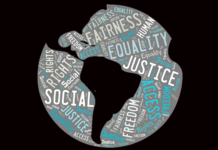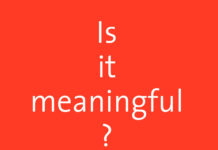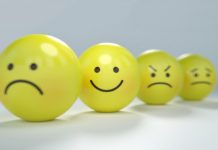Rates of ADHD Diagnosis and Prescription of Stimulants Continue to Rise
Two new articles find that rates of ADHD diagnosis and stimulant prescription continue to rise all over the world.
Building a Support Network for Peer Workers in NYC
Peer Workers are actively organizing in New York City. This is significant because the mental health system is failing Peer Workers on so many fronts, and it’s long overdue that we start organizing support for ourselves. Peer work started from a social movement on the streets and has ended up a marginalized and co-opted role in a broken system.
What Does Social Justice Really Mean for Psychologists?
Without clarity and consensus around what social justice means, psychologists risk perpetuating injustices that undermine their stated mission.
A Healing Journey: Leaving Psychiatry Behind
The world calls what was "wrong" with me "bipolar." I prefer the notion that I went through a birth process to become the healer that I am today. I can't be silent because I know there are people like I was who are trapped and may not realize it yet. When they begin to see the prison bars that surround them, I want to be there for them as others were for me.
Having Empathy Doesn’t Mean That You Also Have Compassion!
There’s a very common, pop-psychology, new-age misconception that conflates being empathic with being caring and compassionate. But some of the most highly empathic people I’ve ever known have been con artists, grifters, unrepentant thieves, cynically manipulative fearmongering politicians, and heartless predators of every kind.
The Decline of Danvers State Hospital
For nearly a century, Danvers was a model asylum in the humanistic treatment of the insane, hosting visitors from all over the world. Patients and their families regarded a stay at Danvers as a positive, healing experience. But after the psychopharmaceutical "revolution," the hospital became a snake pit where the mentally ill went to languish and often die.
Antidepressant Use Climbs as Patients Find it Difficult to Discontinue
Findings point to the role of withdrawal symptoms and prescriber practices in long-term antidepressant use.
A Significant Indigenous Scholarship and Another Antipsychiatry Battle
Why is this scholarship important? Because it will fund, create recognition for, and promote research into violence against Indigenous women. It includes not only what is conventionally seen as violence such as murder, rape, and battery, but also violence perpetrated by institutions, including psychiatry.
New Review of Antipsychotics for Schizophrenia Questions Evidence for Long Term Use
A systematic review of the limited research available on the long-term effects of antipsychotics finds fewer symptoms in those off of the drugs.
Trump Anxiety Disorder Is More Fake News
For many people, the current political situation around the world is intensely frightening and not without cause. Depression and anxiety are on the rise, but we need a social model revolution in order to look at why this is happening. Labels like Trump Anxiety Disorder are merely a way to put people’s concerns in a box and leave them unaddressed.
Minimal Evidence for Disruptive Mood Dysregulation Disorder in Childhood
Researchers offer a critical take on the inclusion of the Disruptive Mood Dysregulation Disorder in the DSM-V.
Are Drug Side Effects Driving Depression Rates?
A new study finds that more than a third of Americans are taking prescription drugs that can cause depressive symptoms as a side-effect.
New Research on Patient-Centered Deprescribing for Antipsychotics
Researchers review the risks and benefits of deprescribing from antipsychotic drugs and advocate for a patient-centered approach to tapering.
Why Scientists Should Reconsider Presenting with TED
How many other scientists like me are going to be flagged, publicly reprimanded by TED, for challenging current ways of thinking? Is it even possible to be innovative and follow conventional thinking at the same time? If there are scientists out there with great new ideas, the TED stage may not be the optimal place to state them.
Did You Ever Stop Taking Antipsychotics? – World Survey on Withdrawal
Antipsychotics are big business, professionals are often at a loss as to how to help people going through disturbing experiences, the voices of patients are crowded out of the equation — there are many reasons for the lack of real education and informed consent around antipsychotics. To address this gap in knowledge, we launched a world study on antipsychotic medication withdrawal.
How Doctors Became Such Prolific Drug Dealers
The transformation of normal, unavoidable aspects of life into Medically Treatable Diseases made it not only justifiable, but a moral obligation for potentially everyone to come get euphoria-giving pills. Upstanding, responsible people obey doctor’s orders and do whatever’s medically needed to cure serious illnesses. It was a business model that worked well.
Out-of-home Placements for Children Increase Odds of Psychiatric Issues
When controlling for social and family characteristics, separating children from parents into out-of-home care increases psychiatric issues, prescriptions, and criminal activity.
Improving the Efficacy of Mindfulness in Schools
New research examines factors that make mindfulness interventions in school most effective for adolescent’s mental health outcomes.
David Foster Wallace: Suicide and the Death of Agency
Today is the 10th anniversary of David Foster Wallace’s suicide. While it’s not fair to build an entire theory on an incredibly complicated issue like suicide around one person, Wallace’s death should challenge the common narratives around suicide — that “mental illness” causes it and that “we can’t ever know why people do it.” Both of these are self-serving platitudes that are simply not true.
Study Finds Greening Urban Land Improves Mental Health
Remediating dilapidated physical environments in urban settings can contribute to better mental health.
Researcher Challenges Clinical Effectiveness of Antidepressants
A new article in BMJ Evidence-Based Medicine addresses common misinterpretations of the efficacy research on antidepressants.
Fighting for the Freedom to Hear Voices
We were caught in a tug of war. They wanted my voices gone. I was not going to let go of my voices, my confidants and protectors, regardless of what they did to me. We have the right to hear voices and no longer be hidden away in the attic of taboo and misunderstood experiences. The freedom to hear voices is truly a fundamental human right.
Challenging Resilience as a Buzzword: Toward a Contextualized Resilience Model
Researcher Dr. Silke Schwarz highlights how Western psychology’s construction of individual resilience deflects emphasized individual pathology and deflects efforts at structural change.
Memoirs of a Dissident Psychiatrist
For years I had hoped that psychiatry would free itself from the psychoanalytic doctrine, and when my wish finally came true, my profession went from the frying pan to the fire. My main goal, currently, is to convince professionals as well as the public that most child psychiatric problems can be handled effectively without medication.
Process Oriented Approaches to Altered and Extreme States of Consciousness
When John Herold went to see a Process Work counselor, they talked about how his experience of extreme states had been disruptive in his life, but how these states also had value. The counselor compared John's experience with drinking an entire bottle of Tabasco sauce all at once. Why not instead, the counselor suggested, "try being just a little psychotic all the time?"

































